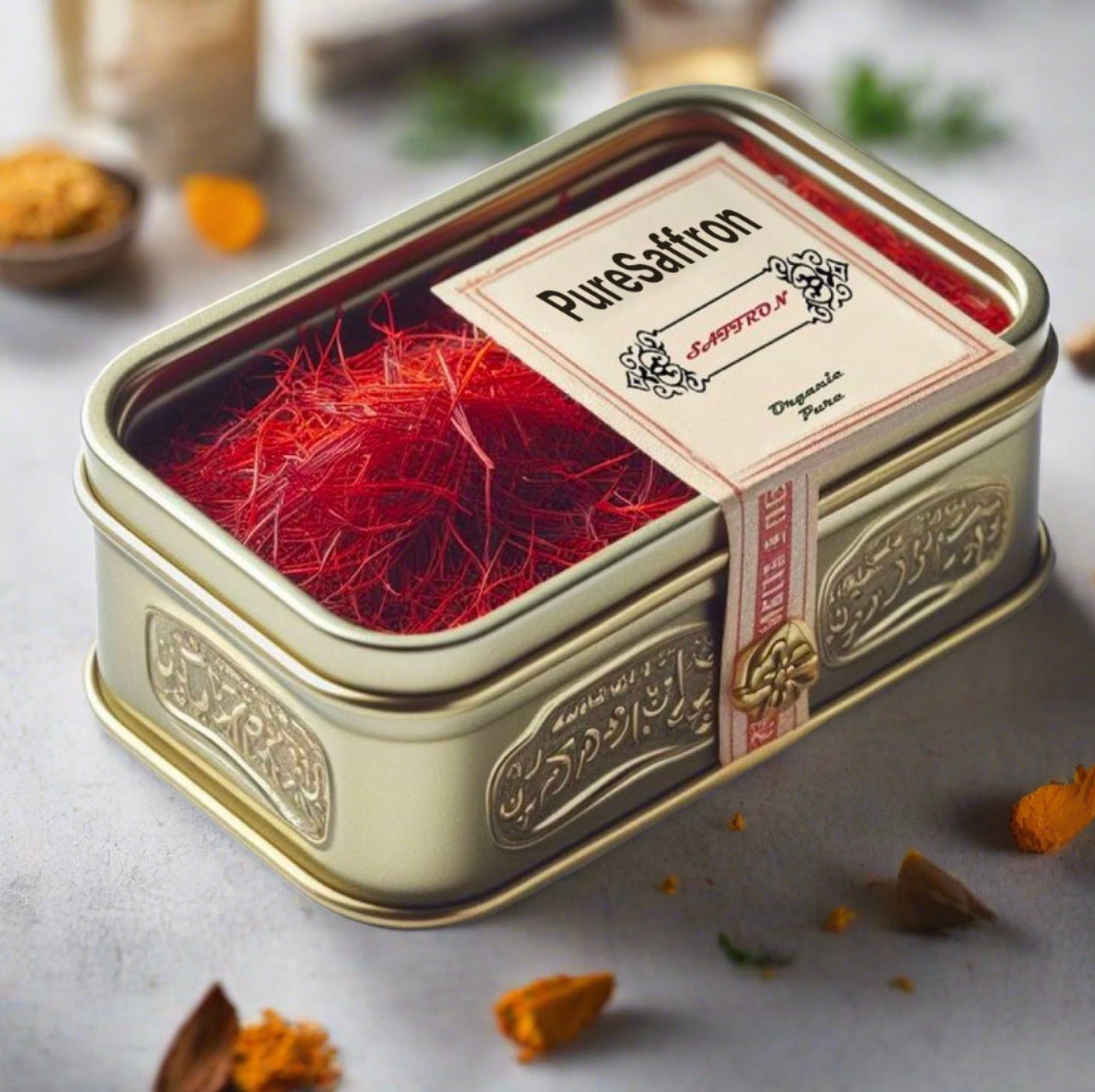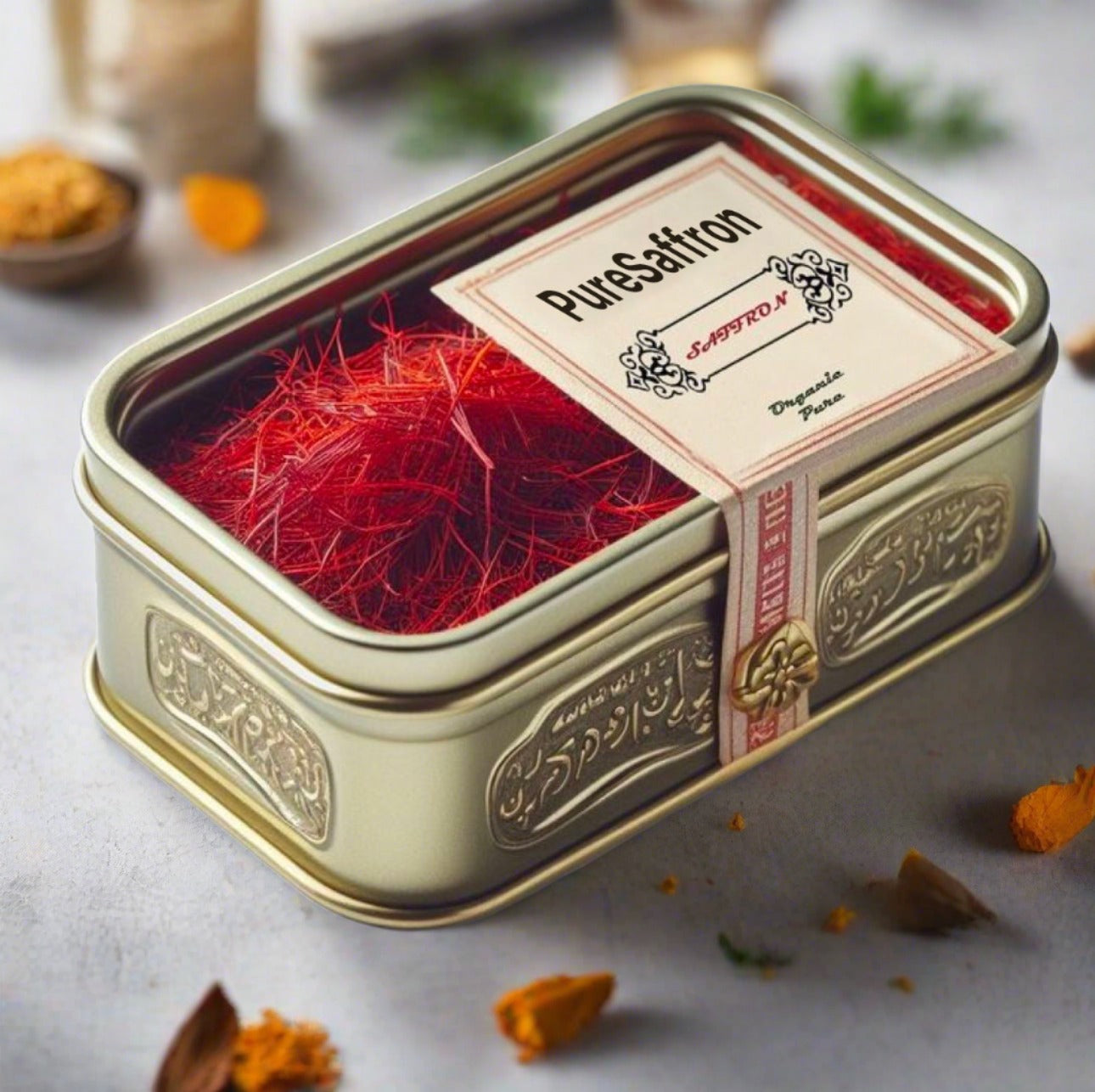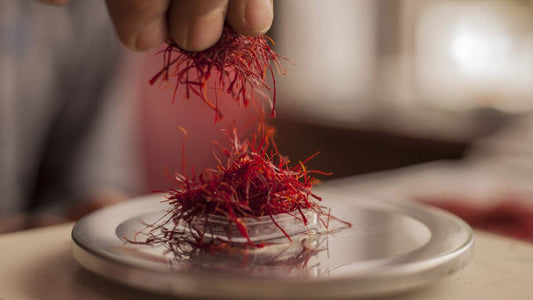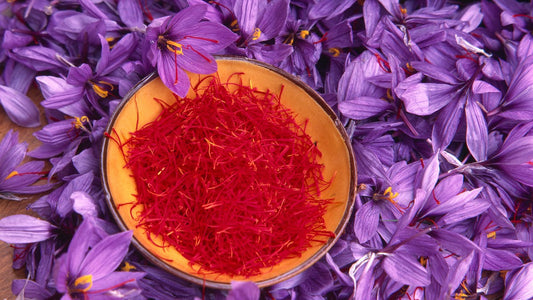Saffron and Skin Care: Benefits and Uses
Ara OhanianShare
Saffron, often referred to as "red gold," is a highly valued spice known for its distinctive color, flavor, and numerous health benefits. Beyond its culinary uses, saffron has been celebrated for its remarkable effects on skin care. This article explores the myriad benefits and uses of saffron in skin care, shedding light on why this ancient spice is making waves in modern beauty regimes.
The Rich History of Saffron in Skin Care
For centuries, saffron has been a prized ingredient in traditional medicine and beauty treatments. Ancient civilizations, including the Egyptians, Greeks, and Persians, utilized saffron for its therapeutic properties. Cleopatra, known for her legendary beauty, was said to include saffron in her beauty rituals to enhance her complexion and maintain her youthful glow.
Nutritional Profile of Saffron
Before delving into its skin care benefits, it's essential to understand the nutritional profile of saffron. Saffron is rich in vitamins and minerals, including:
- Vitamin C: Known for its antioxidant properties, it helps in collagen production and fights free radicals.
- Vitamin A: Promotes healthy skin cell production and repair.
- Iron: Vital for oxygen transportation in skin cells, enhancing their function and health.
- Potassium: Helps in maintaining skin moisture and pH balance.
- Magnesium: Aids in reducing skin inflammation and promotes a healthy glow.
Benefits of Saffron for Skin Care
1. Anti-Aging Properties
Saffron is packed with antioxidants, which help to neutralize harmful free radicals that contribute to premature aging. Its high vitamin C content boosts collagen production, maintaining skin elasticity and reducing the appearance of fine lines and wrinkles.
2. Brightening Effect
The active compounds in saffron, including crocin and crocetin, have skin-brightening properties. These compounds inhibit the production of melanin, the pigment responsible for dark spots and uneven skin tone. Regular use of saffron can lead to a more radiant and even complexion.
3. Treatment of Acne and Blemishes
Saffron's antibacterial and anti-inflammatory properties make it an effective treatment for acne and blemishes. It helps to soothe irritated skin, reduce redness, and prevent future breakouts. Saffron also aids in the healing of acne scars, promoting a smoother skin texture.
4. Moisturizing and Hydrating
Saffron is a natural humectant, meaning it helps to retain moisture in the skin. This is particularly beneficial for individuals with dry skin, as saffron can keep the skin hydrated, soft, and supple. Its hydrating properties also help to improve skin texture and prevent flakiness.
5. Reducing Hyperpigmentation
Hyperpigmentation, such as dark spots and sun spots, can be effectively treated with saffron. Its active compounds work to lighten hyperpigmented areas, resulting in a more uniform skin tone. Saffron's anti-inflammatory properties also help to reduce the appearance of redness and irritation associated with hyperpigmentation.
6. Enhancing Skin Radiance
Regular use of saffron in your skin care routine can lead to a noticeable improvement in skin radiance. Its rich blend of antioxidants and vitamins nourishes the skin, giving it a healthy, natural glow. Saffron-infused face masks and serums are particularly effective for enhancing skin radiance.
How to Use Saffron in Your Skin Care Routine
Incorporating saffron into your skin care routine can be done in various ways. Here are some popular methods:
1. Saffron Face Masks
Creating a saffron face mask is simple and highly effective. Mix a few strands of saffron with natural ingredients like honey, yogurt, or milk to form a paste. Apply the mask to your face and leave it on for 15-20 minutes before rinsing off. This can help to brighten and moisturize your skin.
2. Saffron Infused Oils
Saffron-infused oils are a luxurious addition to any skin care routine. You can make your own by soaking a few strands of saffron in carrier oils like almond or jojoba oil. Massage the infused oil into your skin daily to enjoy its anti-aging and moisturizing benefits.
3. Saffron Toner
A saffron toner can be created by soaking saffron strands in rose water. This toner can be used to refresh and hydrate the skin, tighten pores, and provide a natural glow. Simply spray the toner onto your face after cleansing and before moisturizing.
4. Saffron Scrubs
For an exfoliating treatment, combine saffron with sugar or oatmeal to create a natural scrub. This helps to remove dead skin cells, unclog pores, and promote cell regeneration, leaving your skin smooth and rejuvenated.
DIY Saffron Skin Care Recipes
Saffron and Honey Face Mask
Ingredients:
- 5-7 strands of saffron
- 1 tablespoon of honey
Instructions:
- Soak the saffron strands in a tablespoon of honey for a few minutes.
- Apply the mixture to your face and leave it on for 15-20 minutes.
- Rinse off with lukewarm water.
This mask helps to brighten the skin, reduce blemishes, and provide deep hydration.
Saffron and Yogurt Brightening Mask
Ingredients:
- 5-7 strands of saffron
- 2 tablespoons of yogurt
Instructions:
- Mix the saffron strands with yogurt and let it sit for a few minutes.
- Apply the mixture to your face and leave it on for 20 minutes.
- Rinse off with lukewarm water.
This mask helps to brighten the complexion and improve skin texture.
Conclusion
Saffron's incredible benefits for skin care are undeniable. From its anti-aging properties to its ability to brighten and moisturize, saffron is a versatile and potent ingredient that can transform your skin care routine. Incorporating saffron into your daily regimen can lead to healthier, more radiant skin, making it a worthwhile addition to any beauty arsenal.
FAQ: Saffron and Skin Care
What are the main benefits of saffron for skin care? Saffron offers anti-aging properties, brightens the complexion, treats acne and blemishes, provides deep hydration, reduces hyperpigmentation, and enhances overall skin radiance.
How does saffron help with anti-aging? Saffron is rich in antioxidants and vitamin C, which boost collagen production, maintain skin elasticity, and reduce fine lines and wrinkles.
Can saffron help with acne? Yes, saffron's antibacterial and anti-inflammatory properties help soothe irritated skin, reduce redness, prevent breakouts, and heal acne scars.
How can saffron brighten the skin? The active compounds in saffron, like crocin and crocetin, inhibit melanin production, leading to a more radiant and even complexion.
What are some DIY saffron skin care recipes? Popular DIY recipes include saffron and honey face masks, saffron and yogurt brightening masks, saffron-infused oils, saffron toners, and saffron scrubs.
How do I make a saffron face mask? Mix saffron strands with natural ingredients like honey or yogurt, apply to your face for 15-20 minutes, then rinse off with lukewarm water.
Can saffron be used as a toner? Yes, soaking saffron strands in rose water creates a toner that refreshes, hydrates, and tightens pores.
Is saffron suitable for all skin types? Yes, saffron is suitable for all skin types, including sensitive skin, due to its natural and gentle properties.
How often should I use saffron in my skin care routine? For best results, use saffron-infused products or DIY treatments 2-3 times a week.
Where can I buy pure saffron for skin care? Ensure you purchase high-quality, pure saffron from reputable sources, such as specialty spice shops or trusted online retailers like puresaffron.com.




